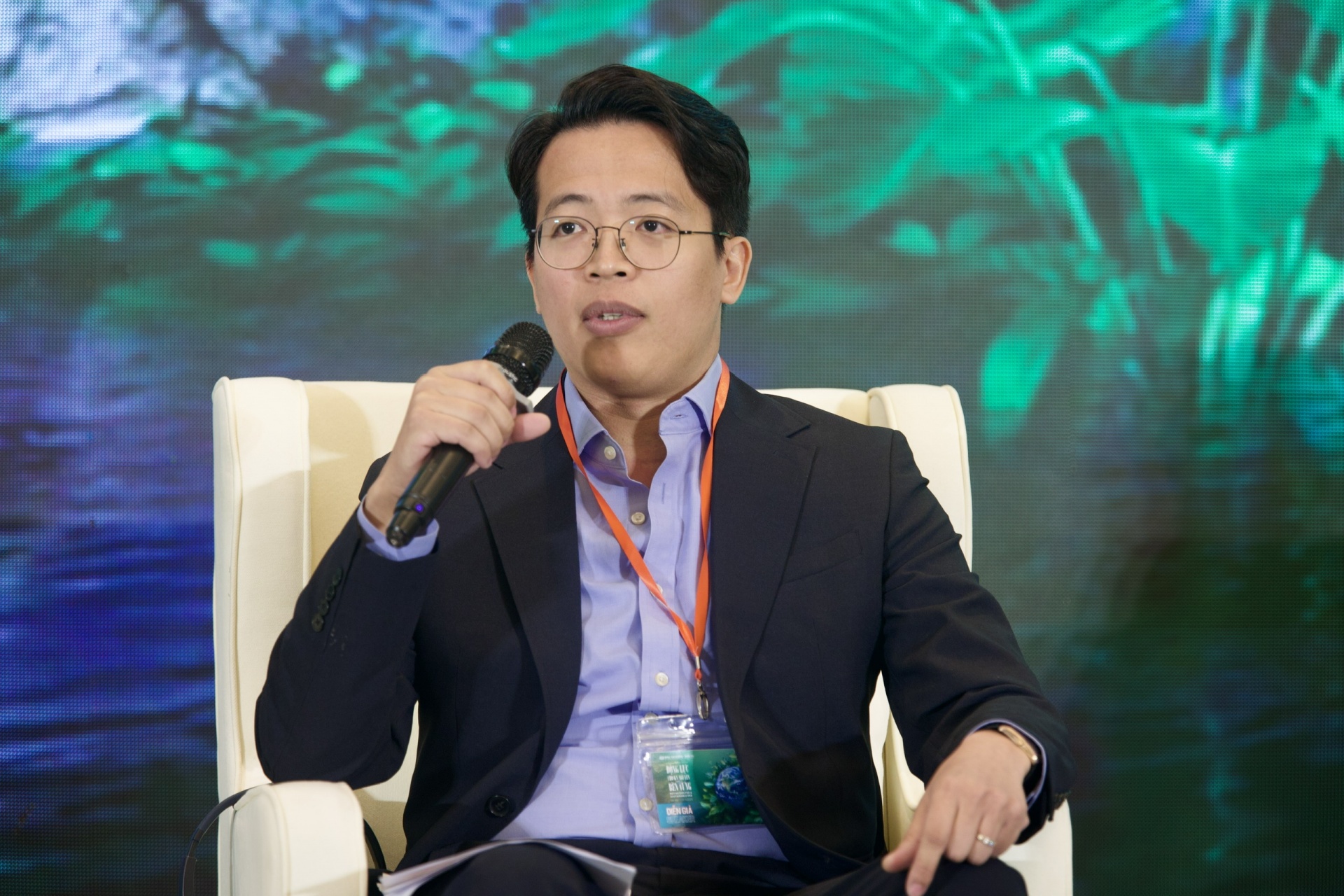 |
| Ta Duc Binh, a specialist at the Institute of Strategy and Policy on Agriculture and Environment |
Ta Duc Binh, a specialist at the Institute of Strategy and Policy on Agriculture and Environment (ISPAE), Ministry of Agriculture and Environment (MAE), said, “The world is facing the risk of the average global temperature rising 1.5 °C. Meanwhile, the global carbon budget will be used up in six years. The risks of natural disasters and supply chain disruptions have become more evident than ever.”
Major markets, such as the EU and the US, are implementing stricter sustainability requirements, such as the Carbon Border Adjustment Mechanism (CBAM) or requiring low-emission certifications. This creates both pressure and motivation for Vietnamese businesses to transform their operations to maintain competitiveness.
Vietnamese enterprises that lag behind risk exclusion from the global market, while those that successfully transition can integrate more deeply into global value chains.
“Green transformation is no longer optional – it is a must-take path,” Binh said. “However, rather than focusing solely on speed, we need to give priority to technological depth and production organisation. Vietnam has a significant opportunity to attract green capital and enhance its position in global supply chains by taking advantage of these levers.
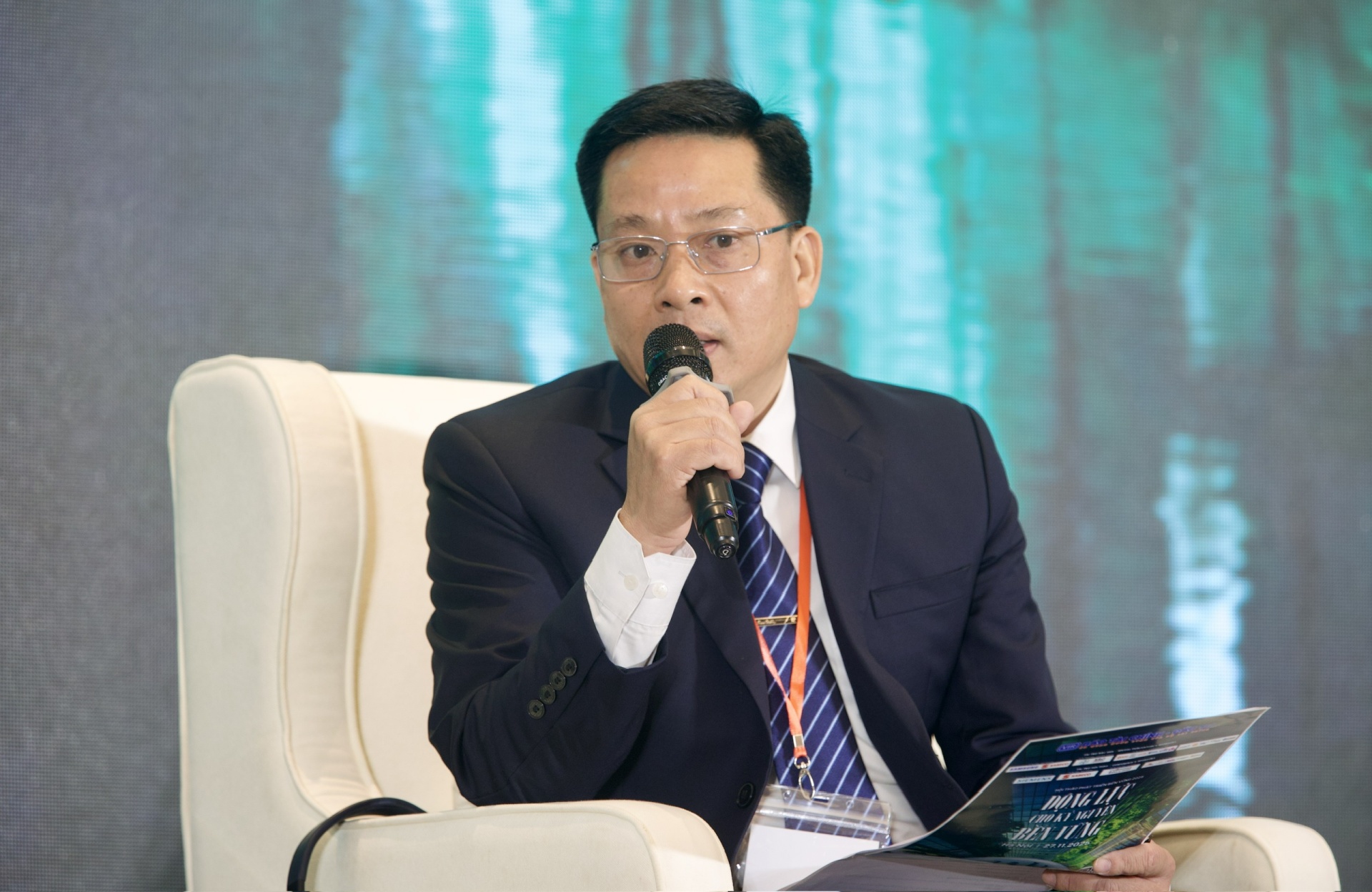 |
| Vu Thai Truong, head of the Climate Change Department at UNDP Vietnam |
Vu Thai Truong, head of the Climate Change Department at the United Nations Development Programme Vietnam, said, “The circular economy is becoming a cornerstone in the sustainable development strategies of many countries. The EU has implemented the Circular Economy Action Plan, promoting sustainable product design, extended producer responsibility, and secondary materials markets.”
In Vietnam, the government has issued a slew of policies, including the 2020 Law on Environmental Protection, the Circular Economy Development Project (Decision 687/QD-TTg), and the National Action Plan for the Circular Economy (Decision 222/QD-TTg), in line with the country’s net-zero commitments and the United Nations Sustainable Development Goals (SDGs). The recent Decision 21/2025/QD-TTg on the Green Classification List is expected to create a tangible impact, paving the way for a professional green evaluation market and prompting businesses to adopt sustainability as a competitive edge.
“Four new strategic resolutions, including Resolutions 57-NQ/TW, 59-NQ/TW, 66-NQ/TW, and 68-NQ/TW, create an important institutional foundation for Vietnam’s next stage of development. The resolutions send a strong signal to the market that the private sector will play a central role in shaping green growth and transforming the economic model,” he stated.
 |
| Nguyen Dinh Trung, senior manager of financial and ESG services at PwC Vietnam |
Nguyen Dinh Trung, senior manager of financial and environmental, social, and governance (ESG) services at PwC Vietnam, said, “Vietnam has introduced policies along with comprehensive criteria to promote sustainable development. However, there are significant challenges to applying the same criteria uniformly to all businesses, especially small and medium-sized enterprises (SMEs). We can compare Vietnam’s approach with some markets that are more advanced in ESG and sustainable development. Accordingly, these markets adopt a decentralised approach, offering simpler criteria for SMEs.”
In several markets, after issuing national strategies on green growth, the regulatory bodies also provide more detailed, sector-specific guidelines to help businesses implement these requirements more clearly and effectively. Finally, many markets are introducing incentives for green and sustainable development, such as tax, carbon, and financial incentives, to support businesses in their transition.
“Over the past three to four years, Vietnam has made significant progress in shifting from the concepts of ESG and sustainability to building a full policy architecture that supports green growth in the market,” Trung shared.
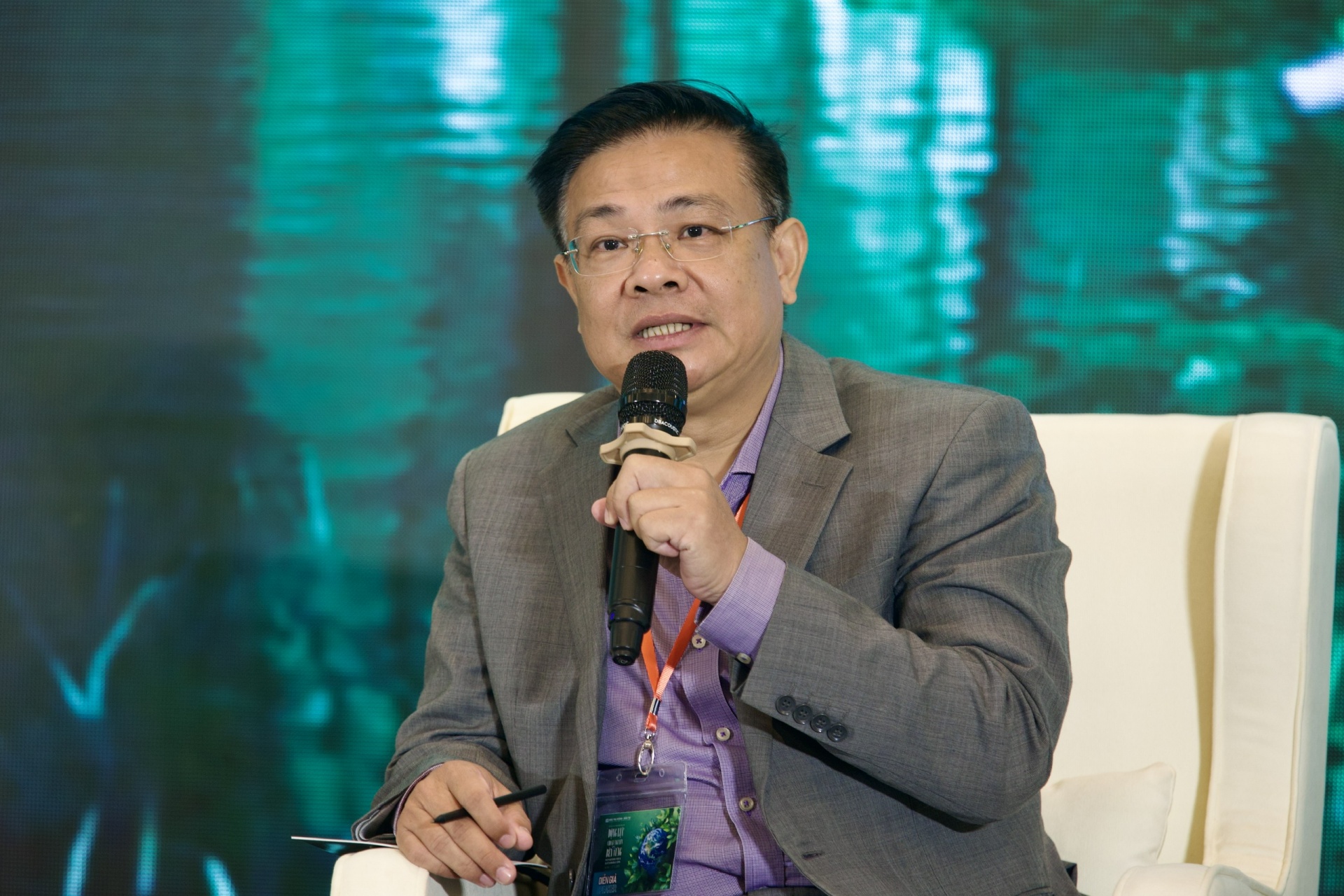 |
| Bui Trung Kien, vice chairman of the board of directors at CME Solar Investment JSC |
Bui Trung Kien, vice chairman of the board of directors at CME Solar Investment JSC, said, “CME Solar is focusing on sustainable values, applying ESG in production and business. Indeed, sustainable development is becoming CME Solar’s core value. The company not only adopts ESG practices but also aligns its production and business operations with the SDGs.”
As a pioneer in renewable energy, CME Solar has channelled its resources to build a system in line with the ESG principles. Currently, the company is collaborating with numerous enterprises to install rooftop solar systems at factories and business facilities. It is taking full responsibility for investment and operation costs while supplying electricity to the enterprises at discounted rates.
“Our projects span across multiple provinces and sectors, including garments, footwear, pharmaceuticals, logistics, food processing, and equipment manufacturing. We serve both foreign and local firms, who pay special attention to sustainable development and cost optimisation,” he said.
 |
| Le Anh, sustainability director of Duytan Recycling |
Le Anh, sustainability director of Duytan Recycling, said, “Duy Tan has been in the plastics industry for 38 years with flagship products like plastic tables, chairs, and cabinets. In 2016, we noticed the growing trend of plastics being discarded into the environment. Many eco-conscious people wonder where these plastic bottles end up and how they are recycled.”
“In 2021, we officially completed our first plastic recycling factory using bottle-to-bottle technology. The company collects used plastic bottles and recycles them at our factory into plastic pellets, which are later blown into new bottles,” he said.
A green and circular economy in the plastics industry is not far-fetched. The green and circular economy is already very close to us. For example, the Lavie, Coca-Cola and Pepsi bottles have achieved recycling rates of 50–-100 per cent. Meanwhile, Unilever’s bottles have also participated in the circular economy process.
The government’s policies have promoted the circular economy in Vietnam’s plastics industry. With the implementation of the Environmental Producer Responsibility scheme, Duy Tan records the domestic output surge from 2,000 tonnes in 2021 to 16,000 tonnes in 2025, an eight-fold increase in domestic demand.
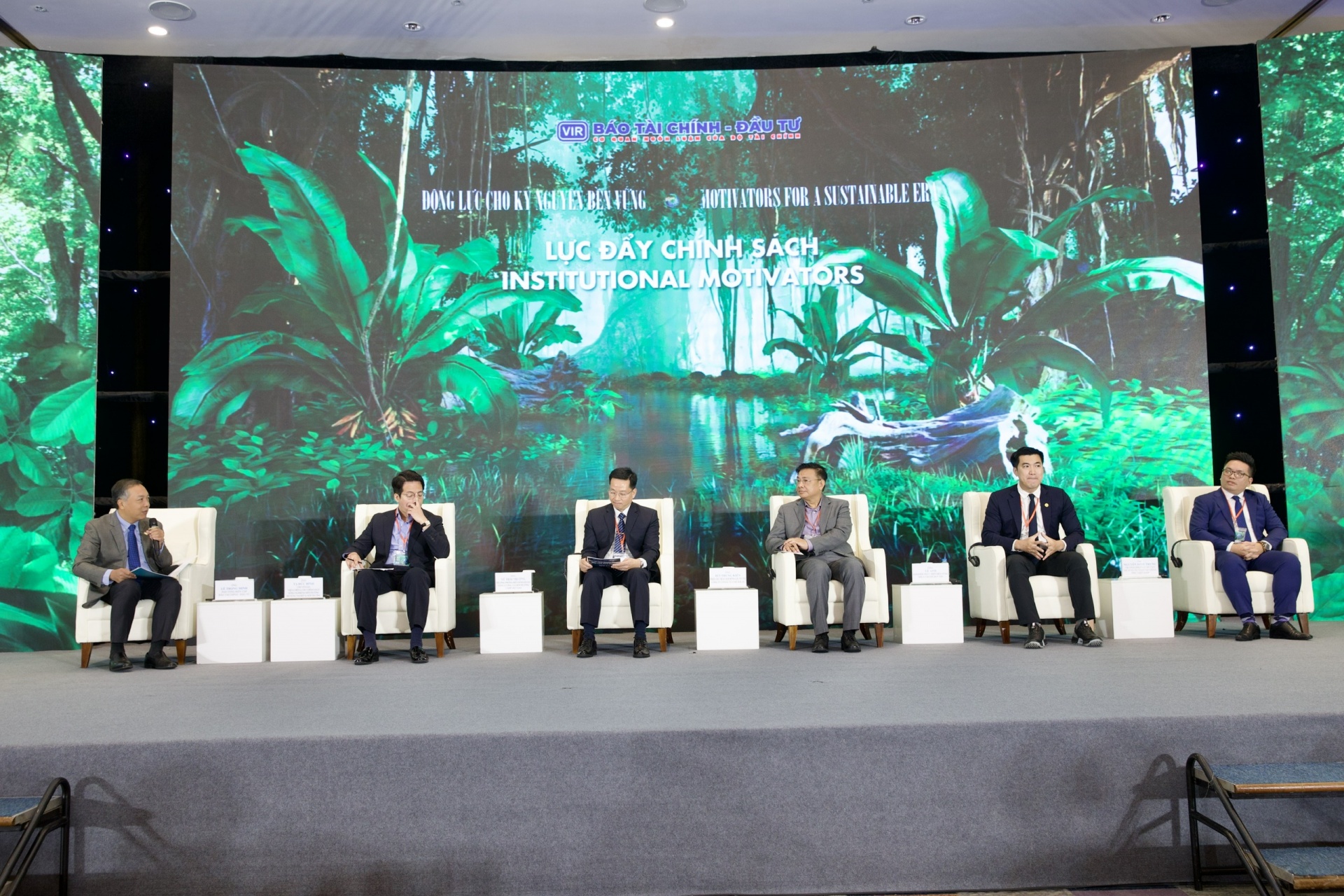 |
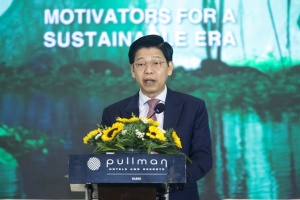 |
Businesses key on Vietnam’s path to a digital and net-zero economy
Sustainable Development 2025 Conference is taking place this morning (November 27) in Hanoi with the participation of more than 200 representatives, providing richer, more multidimensional perspectives on the responsibilities and actions needed to strengthen the resilience of enterprises and the economy. |
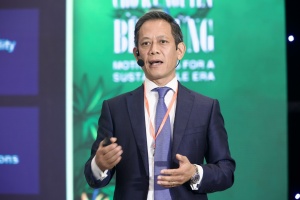 |
Siemens leads technology transformation toward sustainability in Vietnam
Siemens is harnessing advanced digital technologies and AI to drive global sustainability, enhancing efficiency, reducing emissions, and supporting Vietnam’s transition towards a smarter, cleaner future. |
 |
Green manufacturing insights and transformations: SABECO’s path to industry leadership
In an era when global market forces, consumer expectations, and national emphasis converge towards sustainability, green manufacturing has shifted from a corporate aspiration to an economic imperative. For Vietnam, this shift is especially urgent, and highly strategic. |





